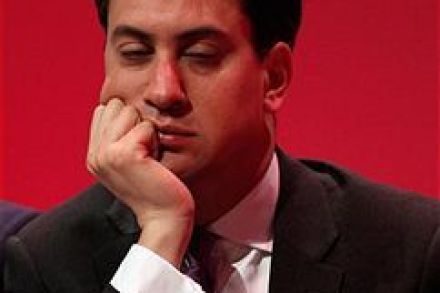Ed Miliband’s speech: live blog
1522, PH: We’ll leave it there. More reaction on Coffee House shortly. 1520, PH: And there’s the closing summary. He manages to squeeze “new generation” and “optimists” in several times. Then, a standing ovation, natch. 1519, PH: Weird blip as Miliband says that he wants to take on “David … Cameron”. Did he have another rival called “David” in mind? 1518, PH: A bit of life to the speech now, as Miliband takes on the Red Ed label. “Come of it,” he swipes, “let’s debate the issues that matter to Britain.” 1518, FN: A huge sigh of relief in Tory HQ, I suspect, as he says he supports Ken Clarke’s















